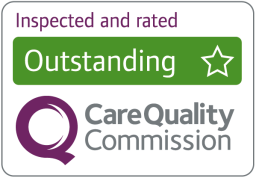How does the emergency contraceptive pill work?
Emergency contraceptive pills are easy to get hold of and have very few side effects. They work by delaying the release of an egg, known as ovulation, by a few days. This means that you could still get pregnant if you have unprotected sex again before your next period.
Get emergency contraception
To get the morning after pill you can:
get it free from your local sexual health clinic, your GP, an NHS walk-in clinic or some pharmacies
What are the different types of emergency contraceptive pills?
There are 2 types of morning after pills:
Levonorgestrel pills
Most effective when taken within 3 days (72 hours).
This is a single pill that contains 1.5 milligrams of levonorgestrel, a synthetic form of the hormone progesterone. It’s effective in preventing pregnancy if taken within 3 days (72 hours) of a pregnancy risk but becomes less effective the longer you wait to take it.
Ulipristal acetate pills
Most effective when taken within 5 days (120 hours).
This is a single pill that contains 30 milligrams of ulipristal acetate. It’s effective in preventing pregnancy if taken within 5 days (120 hours) of pregnancy risk. It’s more effective than levonorgestrel and doesn’t become less effective over time, but it’s not suitable for everyone.
Find out more about which emergency contraception to choose.
How does the emergency contraceptive pill work?
The hormones in emergency contraception pills change the hormone levels in the body and delay ovulation (when the ovary releases an egg). This is the time in your cycle when you’re most likely to get pregnant.
It’s important to delay ovulation after unprotected sex because:
sperm can live in the uterus and fallopian tubes for up to 5 days, so if you have unprotected sex just before ovulation there could be sperm there already and it could fertilise an egg as soon as you ovulate
as the egg can be fertilised for 2 days after ovulation, if you delay it, the sperm are more likely to die before the egg’s released
What if you’ve already ovulated?
If you’ve already ovulated, then the emergency contraceptive pills will have no effect.
But, even if you think you ovulated more than 5 days ago, we recommend using emergency contraception no matter where you are in your cycle because it’s difficult to predict the exact time of ovulation.
How effective are emergency contraception pills?
emergency contraceptive pills are 50-66% effective
the non-hormonal coil is 99% effective
Side effects of the emergency contraceptive pills
There are no serious or long-term side effects from taking levonorgestrel or ulipristal acetate pills. And emergency contraception does not affect your fertility.
Some people do experience mild side effects, these should not last long. Mild side effects could include:
headaches
dizziness
tiredness (fatigue)
tender breasts
changes to your next period - it could be earlier, later, or heavier and more painful than usual
tummy pain or cramps
nausea or vomiting - if you are sick 2 hours after taking levonorgestrel or 3 hours after taking ulipristal acetate you will need to take another dose
Always do a pregnancy test at least 3 weeks (21 days) after the pregnancy risk, even if you get a period.
Everything you wanted to know about sexual health and wellbeing - your questions answered by our expert team.



